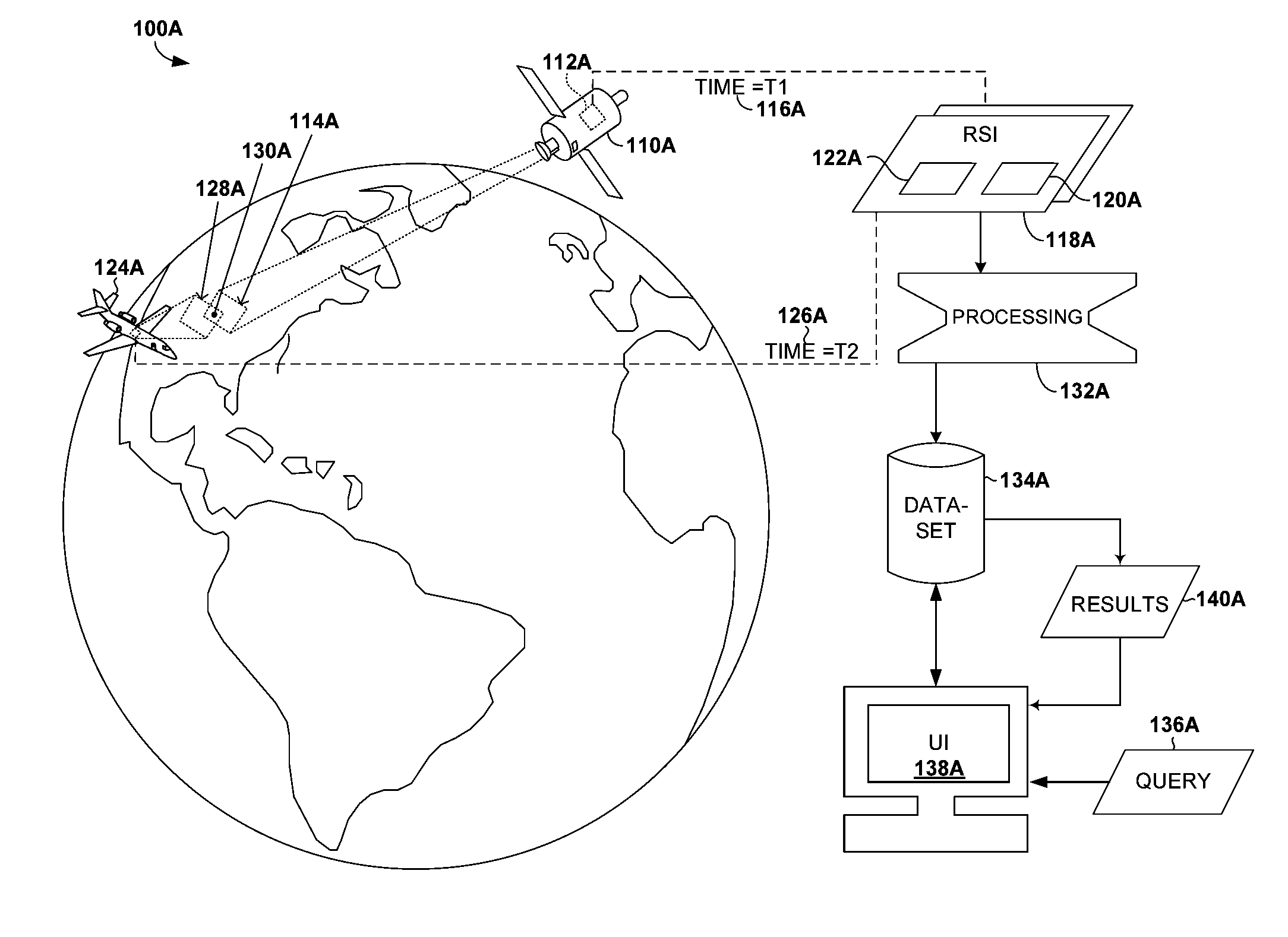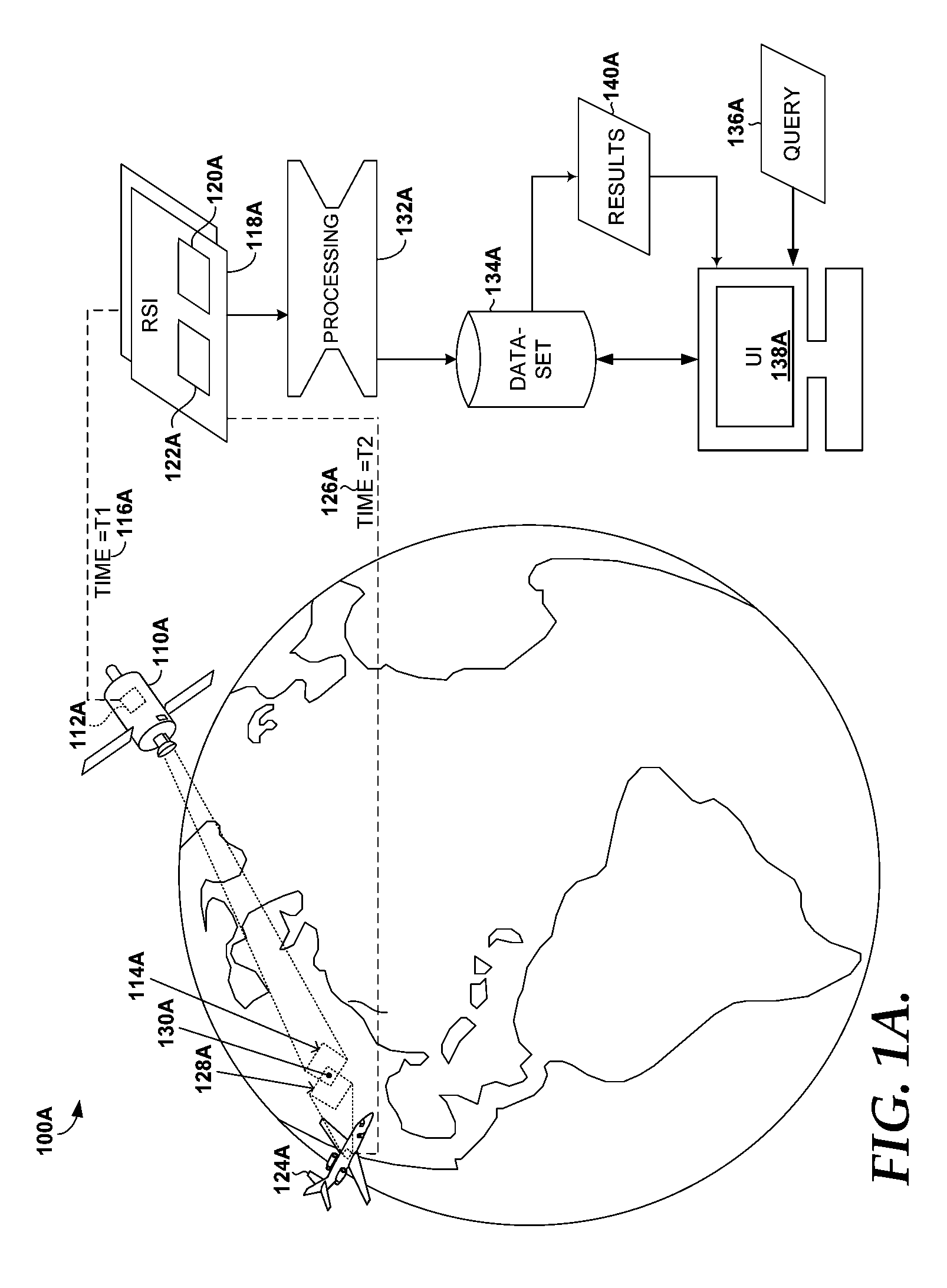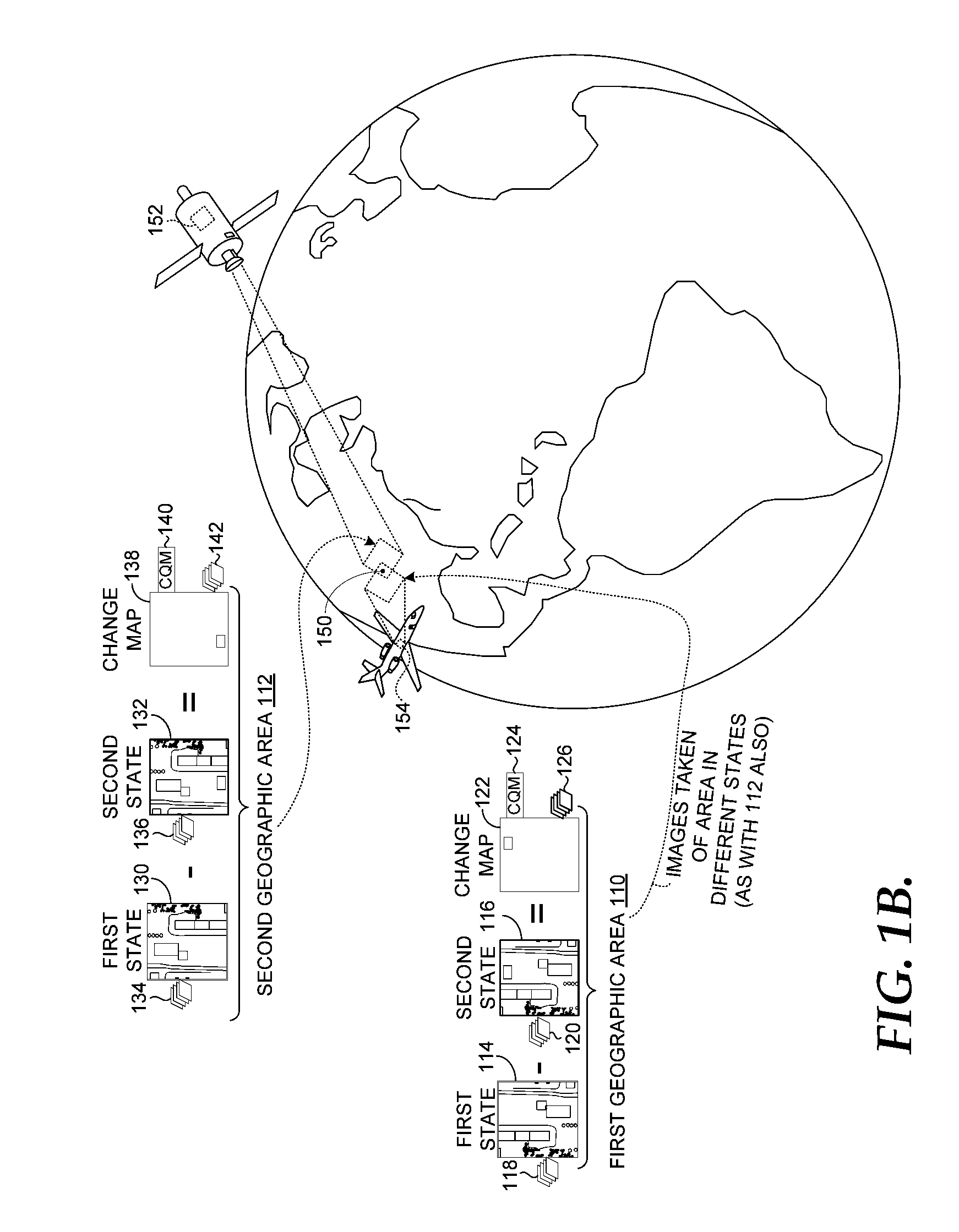Identifying geographic-areas based on change patterns detected from high-resolution, remotely sensed imagery
a technology of high-resolution, remotely sensed imagery and geographic areas, applied in the field of geospatial information processing, can solve the problems of unsearched, unsearched, unsearched, etc., and achieve the effects of avoiding the use of remote sensing imagery
- Summary
- Abstract
- Description
- Claims
- Application Information
AI Technical Summary
Benefits of technology
Problems solved by technology
Method used
Image
Examples
Embodiment Construction
[0067]Throughout the description of our technology, several acronyms, shorthand notations, and terms are used to aid the understanding of certain concepts pertaining to the associated system and services. These acronyms and shorthand notations are intended to help provide an easy methodology of communicating the ideas expressed herein and are not meant to limit the scope of our technology unless we clearly say so. The table below does not include a full definition. A full definition of any term can only be gleaned by giving consideration to the full breadth of this patent.
[0068]Sometimes, we use different terms to refer to similar or the same things. We do not necessarily mean to implicate a difference per se; but are constrained by certain statutory requirements that apply to patents and patent applications. For example, claims must use proper antecedent basis. Sometimes, satisfying this rule can lead to wordiness, whereas using a different word helps make referring to prior terms ...
PUM
 Login to View More
Login to View More Abstract
Description
Claims
Application Information
 Login to View More
Login to View More - R&D
- Intellectual Property
- Life Sciences
- Materials
- Tech Scout
- Unparalleled Data Quality
- Higher Quality Content
- 60% Fewer Hallucinations
Browse by: Latest US Patents, China's latest patents, Technical Efficacy Thesaurus, Application Domain, Technology Topic, Popular Technical Reports.
© 2025 PatSnap. All rights reserved.Legal|Privacy policy|Modern Slavery Act Transparency Statement|Sitemap|About US| Contact US: help@patsnap.com



